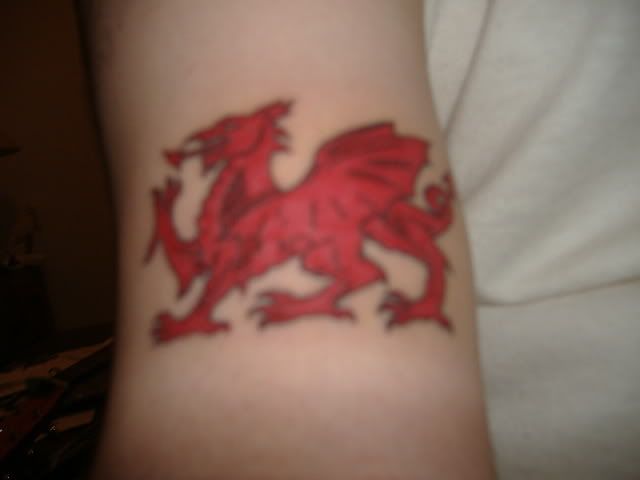As many of you have noticed, I am a geek for all things linguistic. As few of you know, some of my big interests in linguistics are phonology and orthography. As you all know, English orthography is a disaster. As such, I have begun devising (generally for my own amusement more than anything) alternate systems or English orthography that remove a lot of the silliness of modern English. Here are a couple that are in the works.
SIMPLIFIED PHONEMIC ENGLISH
The first alternate system attempts to maintain a lot of modern English conventions, for the purpose of being more easily picked up by the average English speaker.
Consonants are changed fairly little, but some clutter is removed. One oft cited problem with English is that we have three different letters for the K sound, C, K, and Q. C is reduced in its use to just being a CH sound (so it never makes an S sound either). All other -H combinations are kept, and a couple more are added: DH (a voiced TH, as in "the" or "this" as opposed to "thick" or thin,") and ZH (an idea borrowed from dictionaries; rarely used; think "mea
sure"). since ZH covers the "soft" J sound, which is of course rarely used in English anyway, J is only ever the "hard" sound ("jacket," "Japan"). G is only ever the hard G sound. Any loan words from Gaelic, German, or Hebrew that use the "CH" sound (Bach, Loch, Chutzpah) will use KH. Greater distinctions in general would be given between voiced and unvoiced consonants, so that S is never pronounced as Z, D is never pronounced as T, etc. Silent GHs are dropped completely. Silent Bs and Ls are dropped, assuming they are completely silent (for example, "balm" does not become "bom," but "should" becomes "shoud"). Silent Hs at the beginnings of words are dropped, but an apostraphe is used where they would be, just in the name of differentiating similar words (hour vs. our). The same is done with silent Ks and Gs in front of Ns. Q and X are kept for loanwords from, for example, Arabic and Chinese. X is also kept on for mathematical purposes (as it is such a commonly used variable symbol) and some scientific purposes (as in X-ray).
For vowels, most English combinations are kept. The rule that vowel+single consonant+vowel brings a long vowel is kept, and indeed kept more strictly, BUT a silent vowel that exists only to lengthen a vowel never comes after an intervening consonant (eg, lute would become luet). Whenever two vowels would be touching, but are pronounced distinctly, a hyphen is inserted (eg, "kre-aet" rather than "create"). O never represents a U sound. Yods are assumed to be dropped, so that words were U is used to denote [yu] will require a Y (eg, "used" would become "yuezd"). Y and W are used only as consonants. If a Y vowel would have been used, it is replaced by an E when it follows a consonant ("study" becomes "studde"), and an I when it follows a vowel ("today" becomes "tudai"), or when it follows a consonant but makes a long I sound. A W vowel becomes a U if it would change the sound of another vowel and is dropped if it has no sound change (as in "blow"). The same thing happens to terminal Hs in words like "Oh". Hs are kept, however, after Ws, as they are often pronounced slightly, but WH is never pronounced as H. Vowel pronunciation rules are not generally changed, as wide variation by dialect of vowel pronunciation across English makes this incredibly difficult and basically pointless. Some vowel combinations are eliminated and changed to things that are more consistent with English pronunciation rules (for example, the "eo" in "people" becomes "ee").
All standard contractions are kept.
The basis of much of this is dictionary phonetics, but some things come from other sources. The hyphens to separate syllables where there would otherwise be confusion, for example, comes from Korean Romanization. The apostraphes for letters that "used to" be there are used in some languages, and are also similar to the role of the circumflex in French, which often signals that there "used to" be an S after this vowel (Eg, "fête," feast).
The Alphabet would look like this:
A B C D DH E F G H I J K L M N O P R S SH T TH U V W Y Z ZH
Sample text*:
Jenerals Gadherd in dheir massez,
Just liek wiccez at blak massez
Evil miendz dhat plot destrukshun,
Sorserrors uv death's construkshun
In dhe fieldz, dhe boddiez burning,
Az dhe war mashien keeps turning
Death and haetred to man kind,
Poizunning dheir brainwashd miendz,
O Lord Ye-a.
Pollittishanz hied dhemselvs awai,
Dhei oenle started dhe war
Whi shoud dhei go out tu fiet?
Dhei leav dhat up tu dhe poor
Ye-a
Tiem will tell on dheir power miendz,
Making war just for fun
Treating peepl just liek paunz at cess,
Wait til dheir judjment dai kumz
Ye-a
Nou in darkness world stops turning
Ashez wher dhe boddiez burning
No mor war pigs hav dhe power
Hand uv God haz struk dhe 'our.
Dai uv judjment, God iz kalling
On dheir 'neez dhe war pigz kraulling
Begging mersiez for dheir sinz
Satan laffing spreadz hiz wingz.
DIACRITIC RELIANT ENGLISH
The second new system is a much bigger overhaul, and a bit less intuitive. It is much more phonetic, introduces several new characters, but eliminates many more. It is also a lot harder to type this one.
The DRE alphabet would be:
A Á C
C E É F
F H I Í K
K L M N Q O Ó P
P R S
S T
T U Ú W Y ∫
∫ ∂
∂Underlines here are used because they are the only mark I could use that would actually show up typed. A written alternative might be a circumflex (which is used to change consonant sounds in many Slavic languages that use the Roman alphabet), but frankly I'm pretty fond of using the underlines. They look really cool. In any case, they are used to denote voicing. So K would be an English K sound (voiceless velar plosive) and
K would be an English G sound (voiced velar plosive). And so on: voiced F is V, voiced P is B, voiced S is Z, voiced T is D. C is, as above, a CH sound, so
C is J. ∫ is an SH sound, so
∫ is a ZH sound. ∂ is somewhat of a problem for me, since other languages that use it make it a voiced TH sound, but I do not have access here to a theta or thorn symbol, so I use this and it is backwards. ∂ is TH, and
∂ is DH. Q is given a new purpose: it makes an NG sound.
Vowels are not phonetic, as they are still based somewhat in standard English orthography. Accented vowels are long, unaccented vowels are short. So: A as in cat, Á as in cape; E as in bet, É as in beet; I as in bit, Í as in bite; O as in got, Ó as in tome; U as in cut, Ú as in flute. Again, yods are dropped, so Y is necessary for the beginning of the word "used". All other vowel sounds are made by diphthongs. Hyphens are again used to separate vowel sounds. English rules of vowel+single consonant+vowel making a long vowel are not used. There are no silent letters. Other vowel sounds are made by the logical combinations.
The word "the" is a trick since it is pronounced two completely different ways. The spelling will be with a short E, which is a compromise and technically not equivalent to either pronunciation, but what are you going to do? Similarly, the indefinite article "a" will be spelled "a". It wouldn't make sense to have "the" be spelled "
∂é" and "
∂u" alternatly and "a" be spelled "á" and "u" alternately.
Sample*:
Cenerul
s ka
∂ur
t in
∂er mase
sCust lík wice
s at
plak mase
sE
fil mín
ts ∂at plot
téstruk∫un
Sórsurór
s u
f te∂'s kunstruk∫un
In
∂e fél
ts ∂e
po
té
s purniq
A
s ∂e wór mu∫én képs turniq
Te∂ an
t hátre
d tu mankín
tPóé
suniq
∂er
pránwa∫d mín
tsÓ Lor
t Ya!
Politi∫an
s hí
t ∂emsel
fs awá
∂á ónlé storte
t ∂e wór
Wí ∫ú
t ∂á
kó oút tu fít?
∂á lé
f ∂at up tu
∂e púr
Ya!
Tím wil tel on
∂er power mín
tsMákiq wór
cust fór fun
Trétiq pépul
cust lík pon
s in ces
Wát til
∂er
cu
tcment
tá kum
sYa!
Noú in
torknes wurl
t stops turniq
A∫e
s wer
∂e
po
té
s purniq
Nó mór wór pi
ks ha
f ∂u power
Han
t u
f Ko
t ha
s struk
∂e oúr
Tá of
cu
tcment,
Ko
t i
s coliq
On
∂er né
s ∂e wór pi
ks croliq
Pe
kiq mursé fór
∂er sin
sSátan, lafinq, spre
ts hi
s wiq
sÓ Lór
t Ya!
*A common linguistic example for general purposes is the Lord's Prayer. I have gone a different direction.
Labels: language






